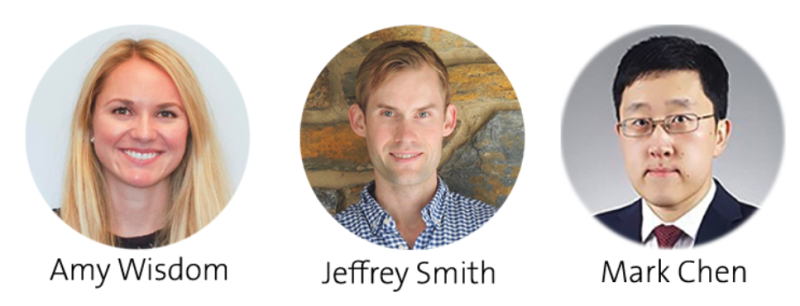
Three young Duke scientists who research cancer have been selected to attend the 68th Lindau Nobel Laureate Meeting in June, to be held in Germany. Mark Chen, Amy Wisdom, and Jeffrey Smith, are all MD/PhD candidates in the Medical Scientist Training Program (MSTP) at Duke University School of Medicine.
The annual Lindau Nobel Laureate meetings have been organized since 1951 to promote “exchange, networking and inspiration.” They bring together the leading scientists of the times with top young scientists from all over the world. The approximately 600 young scientists selected to attend (doctoral candidates and post-docs under the age of 35) were first nominated by their academic institutions following an internal application process.
Chen, a Chicago native, is using CRISPR technology, genetically engineered mouse models, and chromatin profiling to answer why some sarcomas are much more responsive to radiation therapy than other tumors. He was co-author of a study in Nature Communications last year that described genetically engineered mouse models of sarcoma that can be employed to test new therapies, imaging agents and study metastasis.
Wisdom, a native of Shingle Springs, California, is combining radiation therapy and immune checkpoint inhibition (a type of immunotherapy) to stimulate an immune attack against cancer cells. Her thesis work in molecular cancer biology seeks to understand mechanisms of tumor resistance to radiation and immunotherapy and identify novel targets to improve patient responses to immunotherapy.
Jeffrey Smith, from Richland, Washington, will defend his biochemistry thesis in May. A member of the Rajagopal Lab, his PhD research focuses on how to design better drugs targeting chemokine receptors, which are involved in regulating many disease processes including cancer and inflammation. He has worked with his mentors Sudarshan Rajagopal, MD, PhD, and 2012 Nobel Laureate Robert J. Lefkowitz, MD, to delineate new signaling pathways that are critical to immune cell movement.